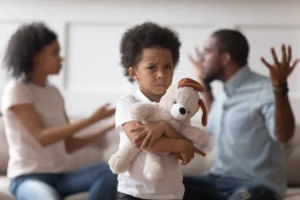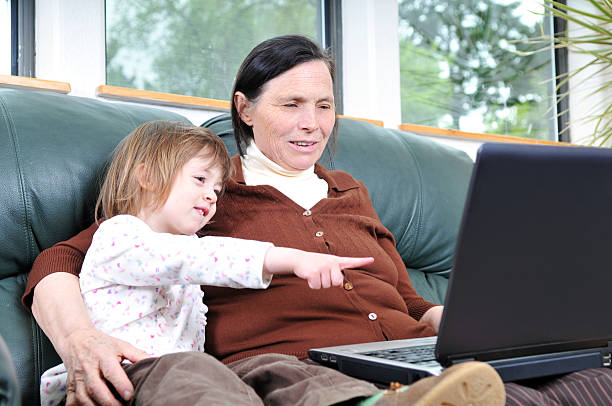Cognitive overload
Cognitive overload occurs when a person has too much to think about and becomes overwhelmed trying to complete multiple tasks. The person thinks the tasks are too difficult or there is not enough time to do everything that needs to be done. The experience of cognitive overload is often associated with expectations and a sense of responsibility to do too much. The demands (real or perceived) exceed what an individual can reasonably manage.
Consequences of cognitive overload
Constant changes to accommodate the PSP can take a toll. Families can experience flexibility fatigue, relationship strain, uncertainty, and guilt.
Try: Skill-building Exercises
Need Something More?
Check out our self-directed Spouse or Significant Other Wellbeing Course.
References for this page (click to expand)
American Psychological Association. (2022). APA Dictionary of Psychology. American Psychological Association. Retrieved July 18, 2022, from https://dictionary.apa.org/
Brodie, P. J., & Eppler, C. (2012). Exploration of Perceived Stressors, Communication, and Resilience in Law-Enforcement Couples. Journal of family psychotherapy, 23(1), 20-41. https://doi.org/10.1080/08975353.2012.654082
Dean, L., Churchill, B., & Ruppanner, L. (2022). The mental load: building a deeper theoretical understanding of how cognitive and emotional labor overload women and mothers. Community, work & family, 25(1), 13-29. https://doi.org/10.1080/13668803.2021.2002813
Duxbury, L., & Higgins, C. (2012). Caring for and about those who serve: work-life conflict and employee well being within Canada’s police. Sprott School of Business, Carleton University.
Karaffa, K., Openshaw, L., Koch, J., Clark, H., Harr, C., & Stewart, C. (2015). Perceived Impact of Police Work on Marital Relationships. The Family journal (Alexandria, Va.), 23(2), 120-131. https://doi.org/10.1177/1066480714564381
Regehr, C. (2005). Bringing the trauma home: Spouses of paramedics. Journal of loss & trauma, 10(2), 97-114. https://doi.org/10.1080/15325020590908812
Regehr, C., Dimitropoulos, G., Bright, E., George, S., & Henderson, J. (2005). Behind the Brotherhood: Rewards and Challenges for Wives of Firefighters. Family relations, 54(3), 423-435. https://doi.org/10.1111/j.1741-3729.2005.00328.x
Watkins, S. L., Shannon, M. A., Hurtado, D. A., Shea, S. A., & Bowles, N. P. (2021). Interactions between home, work, and sleep among firefighters. American journal of industrial medicine, 64(2), 137-148. https://doi.org/10.1002/ajim.23194
What is eldercare? How can it affect families?
Eldercare refers to the care of older adults, often by their adult children. Those supporting elders take on a wide range of caregiving responsibilities like helping to support health appointments, nutrition, finances, and household management. Caring for older adults in poor health, particularly those living with dementia also involves significant emotional labour. When families engage in eldercare, the additional and ongoing demands on time and emotional energy can be difficult to manage.
How does eldercare affect PSP families?
Benefits and challenges of eldercare
Many families care for elderly family members who need assistance with daily living. This is a choice they make which has many rewards. The additional responsibilities, however, can be underestimated. This can be particularly challenging for PSP families who are faced with irregular work schedules and high job demands.
Benefits

- Intergenerational connections
- Peace of mind
- Strengthened family bonds
- Demonstration of love and affection
Challenges

- Increased family responsibilities
- Potential conflicts with work
- Worry and anxiety
- Added household expense
Try: Skill-building Exercises
Need Something More?
Check out our self-directed Spouse or Significant Other Wellbeing Course.
References for this page (click to expand)
Cattanach, L., & Tebes, J. K. (1991). The nature of elder impairment and its impact on family caregivers’ health and psychosocial functioning. The Gerontologist, 31(2), 246–255. https://doi.org/10.1093/geront/31.2.246
Chassin, L., Macy, J. T., Seo, D. C., Presson, C. C., & Sherman, S. J. (2010). The association between membership in the sandwich generation and health behaviors: A longitudinal study. Journal of Applied Developmental Psychology, 31(1), 38–46. https://doi.org/10.1016/j.appdev.2009.06.001
Duxbury, L., Halinski, M., & Stevenson, M. (2022). Something’s Gotta Give: The relationship between time in eldercare, time in childcare, and employee wellbeing. Journal of Aging and Health, 34(6–8), 1101–1116. https://doi.org/10.1177/08982643221092876
Duxbury, L., & Higgins, C. (2012). Caring for and about those who serve: Work-life conflict and employee wellbeing within Canada’s police. Sprott School of Business, Carleton University.
Herron, R. V., Funk, L. M., & Spencer, D. (2019). Responding the “wrong way”: The emotion work of caringfor a family member with dementia. The Gerontologist, 59(5), e470–e478. https://doi.org/10.1093/geront/gnz047
Riley, L. D., & Bowen, C. P. (2005). The sandwich generation: Challenges and coping strategies of multigenerational families. The Family Journal: Counseling and Therapy for Couples and Families, 13, 52-58. http://dx.doi.org/10.1177/1066480704270099
Two-career households
Two-career households are households in which both adult partners hold demanding jobs. Each partner can pursue a career and together they benefit financially.
Balancing work and family is an ongoing challenge and there can be conflicts between the two. If the spouse or significant other (SSO) of a PSP also works shifts and/or overtime, the challenges increase. Particular attention must be given to transitions, planning, and responsibilities when work schedules are always changing.
Family life is further complicated when both partners have PSP careers. Each partner has insight into the experiences and stress of being on-the-job which can be a benefit but boundaries between work and home can blur. If partners both work within the same sector, or if there is a difference in rank, conflicts can arise.
How two careers affect family life?
Logistics

Expectations
PSP and their families live with many different kinds of expectations. There are expectations from the PSP sector, the PSP organizations, extended family members, friends, the media, etc. In two-career households, there can be the expectation that the PSP job will take precedence over everything else.

Scheduling
In two-career households, scheduling is difficult at the best of times. Shift work, overtime, and unexpected call-ins can make it harder. Many activities and events are scheduled to accommodate standard hours of work (i.e., Mon-Fri 9am-5pm). Challenges are often related to childcare, household responsibilities, social commitments, medical appointments, etc.

Family life-cycle
Family life-cycle can be affected by—and can affect—the partners in a two-career household. Families with young children have different needs than families with adult children. In the same way, family members who provide eldercare to parents/ grandparents can also experience logistical difficulties.

Career life-cycle
Try: Skill-building Exercises
Need Something More?
Check out our self-directed Spouse or Significant Other Wellbeing Course.
References for this page (click to expand)
Brodie, P. J., & Eppler, C. (2012). Exploration of Perceived Stressors, Communication, and Resilience in Law-Enforcement Couples. Journal of family psychotherapy, 23(1), 20-41. https://doi.org/10.1080/08975353.2012.654082
Carlson, D. S., Thompson, M. J., & Kacmar, K. M. (2019). Double crossed: The spillover and crossover effects of work demands on work outcomes through the family. The Journal of applied psychology, 104(2), 214–228. https://doi.org/10.1037/apl0000348
Carrington, J. L. (2006). Elements of and strategies for maintaining a police marriage: The lived perspectives of Royal Canadian Mounted Police officers and their spouses ProQuest Dissertations Publishing].
Duxbury, L., & Higgins, C. . (2012). Caring for and about those who serve: work-life conflict and employee well being within Canada’s police. Sprott School of Business, Carleton University.
Duxbury, L., Bardoel, A., & Halinski, M. (2021). ‘Bringing the Badge home’: exploring the relationship between role overload, work-family conflict, and stress in police officers. Policing & society, 31(8), 997-1016. https://doi.org/10.1080/10439463.2020.1822837
Friese, K. M. (2020). Cuffed together: A study on how law enforcement work impacts the officer’s spouse. International journal of police science & management, 22(4), 407-418. https://doi.org/10.1177/1461355720962527
Higgins, C. A., Duxbury, L. E., & Lyons, S. T. (2010). Coping With Overload and Stress: Men and Women in Dual-Earner Families. Journal of marriage and family, 72(4), 847-859. https://doi.org/10.1111/j.1741-3737.2010.00734.x
Strazdins, L., Clements, M. S., Korda, R. J., Broom, D. H., & D’Souza, R. M. (2006). Unsociable Work? Nonstandard Work Schedules, Family Relationships, and Children’s Well-Being. Journal of marriage and family, 68(2), 394-410. https://doi.org/10.1111/j.1741-3737.2006.00260.x
Childcare
The demands of childcare can be challenging for all families. Shiftwork, shift changes, and overtime hours mean that PSP families can face more complex situations. These demands can pile up and overwhelm PSP families.
- Evidence shows that police officers, firefighters, and paramedics and their spouse or significant other (SSOs) identified shiftwork as creating childcare conflicts and negatively impacting family relationships.1,2,3
- Childcare is often not available outside of the standard work day so it is difficult to arrange when one or both partners work shifts. Alternate childcare can be expensive, and parents may rely on extended family for support.
- Childcare scrambles occur when the work schedules of parents overlap and are characterized by inconsistent and poorer quality childcare arrangements.
Coparenting and tag-team parenting
Coparenting is the coordination of childcare between two or more adults. The parents may live together or apart and provide care for dependent children. This is often a supportive relationship where positive childcare practices are reinforced. However, there can be disputes which create an unstable home environment for children.
The irregular schedules of PSP often involve rotating shifts, mandatory overtime, and call-ins. These work requirements can conflict with childcare responsibilities. In some cases, this puts pressure on the non-PSP parent to fill-in the gaps. When one parent takes on an unfair share of child rearing in the coparenting relationship, they may experience fatigue and resentment due to role overload.
Adaptive coparenting is when two parents work together to overcome challenges related to parenting roles. For example, the non-PSP parent might arrange a family visit to the fire station to visit their firefighter (PSP parent) on duty – this gives children a chance to connect and see where their parent works. Rotating shifts also provide opportunities for parenting. Certain shifts allow PSP to be home with children during the daytime which can benefit dual-career couples.
Tag-team parenting is an example of adaptive coparenting used by households where two or more parents work outside the home. Tag-team parents alternate between parenting responsibilities and paid employment so that one parent is always available for childcare. Although there can be challenges managing unscheduled shifts and overtime, the tag-team approach encourages each parent to engage in a meaningful way with their children.
Challenges
Coparenting may become more difficult when there are problems in the relationship due to poor communication and conflicts.
Competing Demands

Some PSP organizations have yet to take into account family and childcare responsibilities within dual-career households. This can make it difficult to balance work and family life.
Conflict

Families can suffer when parents are unable or unwilling to share childcare fairly. Problems can also arise when a parent undermines the other parent’s child rearing practices.
Gender Inequality

There is evidence that women spend more time caring for children and elders. There also can be a shift to “traditional roles” with the birth of children. This can put added pressure on both women who are PSPs and those who are spouses or significant others.
Career and life-cycle stages
Try: Skill-building Exercises
Need Something More?
Check out our self-directed Spouse or Significant Other Wellbeing Course.
References for this page (click to expand)
1Brodie, P. J., & Eppler, C. (2012). Exploration of perceived stressors, communication, and resilience in law-enforcement couples. Journal of Family Psychotherapy, 23(1), 20-41. https://doi.org/10.1080/08975353.2012.654082
2Regehr, C. (2005). Bringing the trauma home: Spouses of paramedics. Journal of Loss & Trauma, 10(2), 97-114. https://doi.org/10.1080/15325020590908812
3Watkins, S. L., Shannon, M. A., Hurtado, D. A., Shea, S. A., & Bowles, N. P. (2021). Interactions between home, work, and sleep among firefighters. American Journal of Industrial Medicine, 64(2), 137-148. https://doi.org/10.1002/ajim.23194
American Psychological Association. (2022). APA dictionary of psychology. American Psychological Association. Retrieved July 18, 2022, from https://dictionary.apa.org/
Boyd-Swan, C. H. (2019). Nonparental child care during nonstandard hours: Does participation influence child well-being? Labour Economics, 57, 85-101. https://doi.org/10.1016/j.labeco.2019.01.006
Brodie, P. J., & Eppler, C. (2012). Exploration of perceived stressors, communication, and resilience in law-enforcement couples. Journal of Family Psychotherapy, 23(1), 20-41. https://doi.org/10.1080/08975353.2012.654082
Duxbury, L., Bardoel, A., & Halinski, M. (2021). ‘Bringing the badge home’: exploring the relationship between role overload, work-family conflict, and stress in police officers. Policing & Society, 31(8), 997-1016. https://doi.org/10.1080/10439463.2020.1822837
Feinberg, M. E., Boring, J., Le, Y., Hostetler, M. L., Karre, J., Irvin, J., & Jones, D. E. (2020). Supporting military family resilience at the transition to parenthood: A randomized pilot trial of an online version of family foundations. Family Relations, 69(1), 109-124. https://doi.org/10.1111/fare.12415
Lambert, E. G., Hogan, N. L., & Barton, S. M. (2004). The nature of work-family conflict among correctional staff: An exploratory examination. Criminal Justice Review (Atlanta, Ga.), 29(1), 145-172. https://doi.org/10.1177/073401680402900109
Lero, D. S., Prentice, Susan, Friendly, Martha, Richardson, Brooke and Fraser, Ley. . (2019). Non-standard work and child care in Canada: A challenge for parents, policy makers, and child care provision. https://childcarecanada.org/sites/default/files/Non-Standard%20Work%20and%20Child%20Care%2C%20revised%20June%202021.pdf
Paley, B., Lester, P., & Mogil, C. (2013). Family systems and ecological perspectives on the impact of deployment on military families. Clinical Child and Family Psychology Review, 16(3), 245-265. https://doi.org/10.1007/s10567-013-0138-y
Saltzman, W. R., Lester, P., Beardslee, W. R., Layne, C. M., Woodward, K., & Nash, W. P. (2011). Mechanisms of risk and resilience in military families: Theoretical and empirical basis of a family-focused resilience enhancement program. Clinical Child and Family Psychology Review, 14(3), 213-230. https://doi.org/10.1007/s10567-011-0096-1
Strazdins, L., Clements, M. S., Korda, R. J., Broom, D. H., & D’Souza, R. M. (2006). Unsociable work? Nonstandard work schedules, family relationships, and children’s well-being. Journal of Marriage and Family, 68(2), 394-410. https://doi.org/10.1111/j.1741-3737.2006.00260.x




